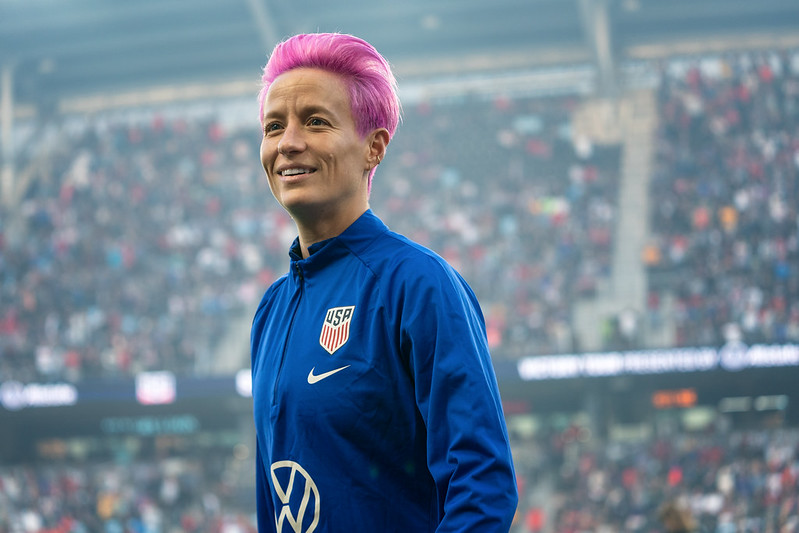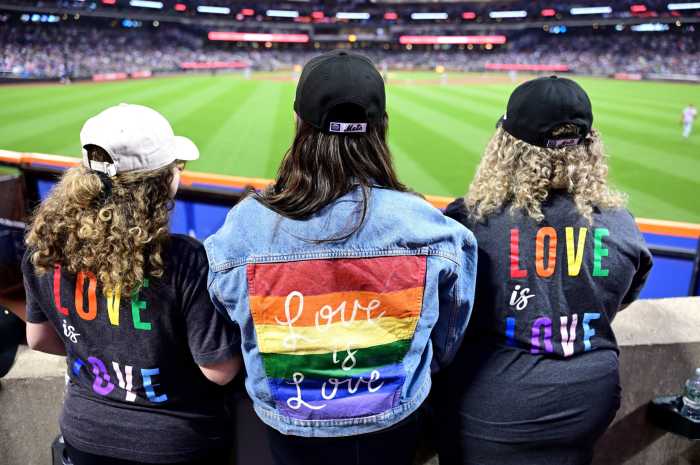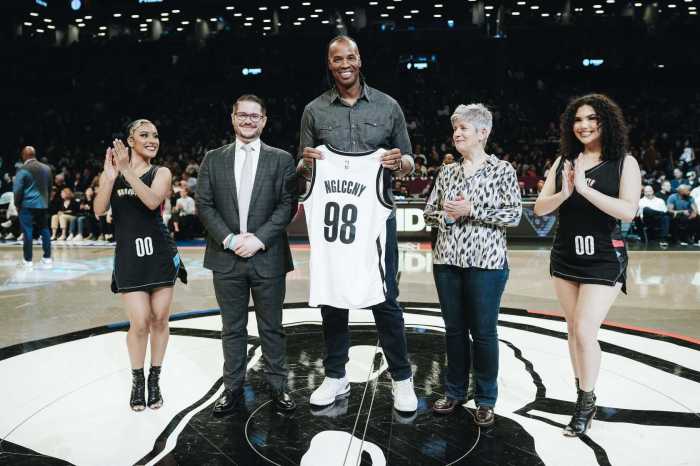Hundreds of athletes, professors, and advocacy organizations penned letters to the NCAA on April 23 calling on its leadership body to support trans athletes and make it clear they are welcome on college sports teams.
The letters were addressed to the NCAA Board of Governors, a governing body, and featured signatures from prominent and well-respected stars ranging from Megan Rapinoe to Sue Bird, adding further weight to the cause. Other former professional athletes who signed the letter included former NFL players Chris Kluwe, who is an ally, and RK Russell, who came out as bisexual in 2019 when he was a free agent.
One of the letters featured more than 400 signatures from key athletes in the sports world, while a separate letter was sent by Athlete Ally — a non-profit fighting for inclusion in sports — along with 53 other LGBTQ organizations and 56 PFLAG chapters. A third letter was written by more than 300 scholars and professors.
The letters come one week after several House Republicans called on NCAA president Charlie Baker to ban trans student-athletes from women’s sports, saying its current policy deprives women “of a fair opportunity to compete and achieve athletic success.” As for the current policy, the NCAA determines eligibility of trans student-athletes by adhering to the rules of the national governing body for a given sport. That approach was first announced in 2022 and involves a years-long implementation process that concludes in 2024-25.
The letter signed by athletes underscored some common themes — including the way in which sport unites individuals, offers physical and mental health benefits, teaches life lessons about teamwork and discipline, and fosters community — but it also dispelled some baseless narratives, including the notion that allowing trans athletes to play in accordance with their gender identity amounts to an attack on women’s sports.
“In reality,” the letter noted, “they fail to address any of the real, documented threats to women in sports, namely unequal pay, failure to uphold Title IX, rampant sexual abuse and harassment of women and girlathletes, and a lack of equal resources for men’s and women’s teams (as we saw in March Madness tournaments just three years ago).”
The letter also cited research published by the Canadian Centre for Ethics in Sport that found biological data on athletes to be “severely limited and often methodologically flawed” and only serve to advance discriminatory policies. The letter also noted how misleading news reports about athletes such as Lia Thomas, an out trans UPenn swimmer, have twisted the reality about trans student-athletes.
The letter sent by academic leaders and scholars also cautioned the NCAA by pointing to the long history of racism, sexism, and other forms of mistreatment in determining who is eligible to play a given sport.
“Such policies are not only transphobic in their implementation; they are inextricably rooted in a history of racism, sexism, ableism, and misogyny,” the letter stated. “Their ongoing impact can be seen through the previous abusive sex testing practices and resulting physical and mental trauma, particularly on athletes in the Global South. These policies are being wielded by institutions and sport governing bodies against and toward racially diverse, gendered, and sexed physical bodies — privileging the misconception and socially constructed idea that the standardized body is white, cisgender, and able-bodied and that all other bodies will be measured against this coercive normalization.”
That point was also echoed by the hundreds of athletes who wrote to the NCAA. They specifically cited the attacks on Andraya Yearwood and Terri Miller, who were high school student-athletes in Connecticut who faced fierce adversity simply for playing in accordance with their gender identity — including from the Trump administration, which deployed the Justice Department to oppose those athletes.
In a separate written statement, Rapinoe — an Athlete Ally ambassador — called on the broader community of athletes to speak out forcefully in support of trans athletes.
“The time is now for the NCAA and the nationwide athletic community to speak up and affirm that sports should be for everyone, including transgender athletes,” Rapinoe said. “To my fellow cis women athletes: the time is now to say loud and clear that bans against trans athletes framed as “protecting women’s sports” do not speak for us, and do nothing to protect us. To the trans athletes fearing that they may be sidelined from the sport they love: I see you and hear you and I am WITH YOU. “
Dozens of states have barred trans athletes from participating in sports in accordance with their gender identity and other places are also weighing similar policies. The issue has also made a mark in New York, where Nassau County executive Bruce Blakeman banned trans athletes from county facilities in a move that drew immediate legal challenges and New York City Education Council District 2 passed a resolution calling for a new committee to review and potentially oppose trans inclusion in school sports. The resolution, however, is non-binding and New York City education officials have stood by trans student-athletes.



































